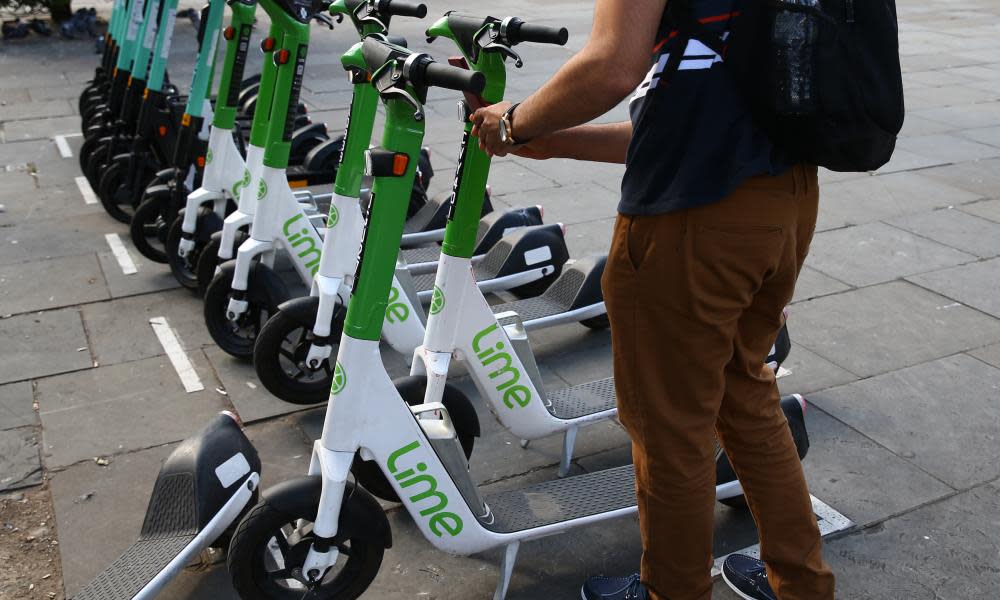E-scooter firms to develop universal warning sound after collisions

E-scooters could all be given the same distinctive artificial sound to warn people when they are approaching, after engineers and rival operators announced a joint research project to identify the best noise for them to make.
Acoustic researchers will work with firms licensed to run UK e-scooter rental schemes with the aim of developing a universal sound for the otherwise near-silent vehicles. The sound would help alert other road users, particularly people with sight loss.
Related: E-scooters to be banned from TfL network over battery fire risk
Concerns have been raised by charities for blind people about the safety of e-scooters after a number of collisions, although these have largely involved unlicensed e-scooters, which are illegal to drive on public roads, let alone pavements.
The sound will be developed at University College London’s laboratories with input from the three licensed operators in London: Dott, Lime and Tier. The multinational operators want to give all their e-scooters the same sound, and hope to set an industry standard for the UK and around the world.
Researchers are aiming for the new sound to be sufficiently distinctive and audible to alert those with sight loss, while not creating further difficulty for those with hearing loss and neurodiverse conditions. A spokesperson said a range of noises would be “ethically tested” at UCL’s Person-Environment-Activity Research Laboratory.
Prof Nick Tyler, the director of the facility, said: “Through studying how the human hearing system has evolved, we can create sounds for e-scooters that are detectable without adding more noise to the environment. It is a huge scientific challenge, but one that will enable everyone to feel comfortable with this new form of micromobility that is quickly growing in popularity.”
Fred Jones, a regional general manager with the e-scooter operator Tier, said developing “an inclusive sound for e-scooters will be crucial to protecting pedestrians and road users potentially made vulnerable through the introduction of this new transport mode”.
The project will build on work done by operators with disability charities and other acoustic researchers.
Related: E-scooter tour firm hopes to win over sceptical Londoners
The chair of Transport for London’s independent disability advisory group, Joanna Wootten, said they were excited that the venture would be “breaking new ground where there are currently no standards or regulations in place”.
Dr Antonio Torija Martinez, an acoustic researcher at the University of Salford, said they had developed a standalone system with variable noises reflecting speed, but were continuing to look into “developing warning sounds for an optimal balance between noticeability and annoyance”.
Trials of legal rental e-scooter schemes continue across the UK, with the government still giving no indication of its long-term decision over the vehicle’s future. Sales of unregulated e-scooters have led to increasing numbers of crashes and deaths, according to a report from the Parliamentary Advisory Council for Transport Safety.

 Yahoo Movies
Yahoo Movies 
